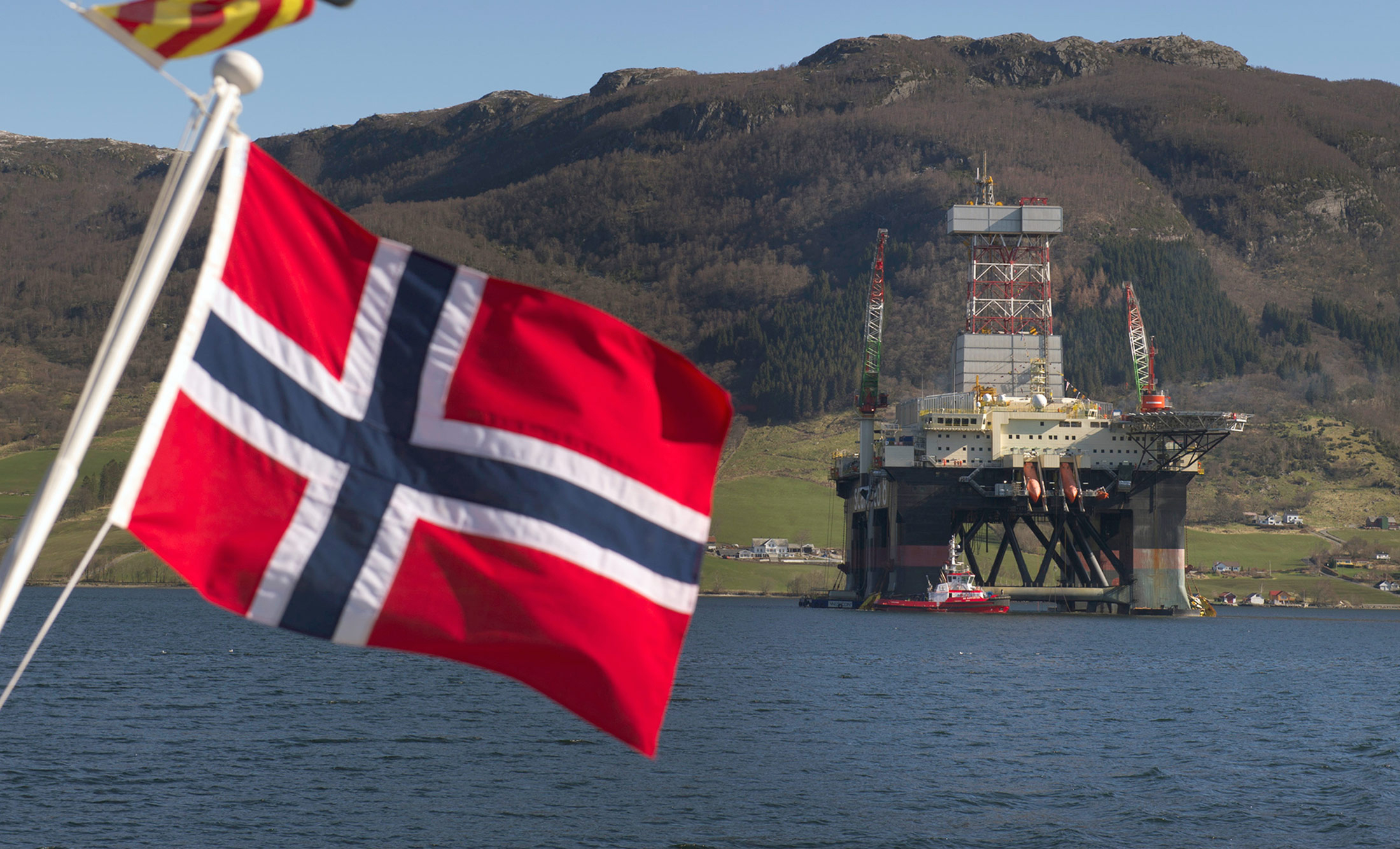Norway plans tax breaks for remotest Arctic oil fields

OSLO — Norway’s government plans to make taxpayers rather than oil companies pay special U.N. fees for any offshore production from remote Arctic regions, according to letters sent to oil firms and seen by Reuters.
The plan could serve as an example for other nations looking to fund exploration of the seabed ever further from land.
It was criticized by opposition parties that want tighter limits on exploration in the fragile Arctic environment, days before an election in which the future of Norway’s big offshore oil and gas sector is a major issue.
[Future of oil takes center stage in Norwegian election]
Opinion polls show a neck-and-neck race between Conservative Prime Minister Erna Solberg’s center-right block and center-left parties headed by Labour leader Jonas Gahr Stoere.
“There is too little risk on the companies, and too much risk on the people of Norway,” said Ola Elvestuen, the head of parliament’s Energy and Environment committee and a member of the small Liberal Party.
“Neither me, nor the committee were informed about this,” he said of the plans, outlined in letters provided to Reuters by the Oil and Energy Ministry, for implementing a dormant provision of the 1982 U.N. Convention on the Law of the Sea.
Under Article 82 of the treaty, rich nations are due to pay up to 7 percent a year of the value of any production — of oil, gas or other minerals — from their continental shelves more than 200 nautical miles (370 kilometers) from land to a fund to help developing nations.
The money would be channeled to poor nations via the United Nations’ International Seabed Authority in Jamaica. The mechanism is untested as there is no production so far offshore.
The Oil and Energy Ministry included a warning about Article 82 when it offered parts of the Arctic Barents Sea, more than 200 nautical miles from land, for exploration in the latest licensing round awarded in 2016.
“The licensees could be required to cover certain costs in this connection,” it wrote in the letters to oil companies. “Any such cost will be deductible in the calculation of the petroleum tax.”
Drilling
The ministry viewed the deductions as matching Norwegian petroleum policy, which includes a principle that “an investment project that is profitable before tax is also profitable after tax,” an official source said.
Last month, Statoil and partners Chevron, ConocoPhillips, Lundin Petroleum, and Petoro drilled the first well in the Arctic Korpfjell prospect, 410 kilometers from the nearest land.
They found only small, non-commercial quantities of natural gas, but Statoil plans more drilling in the area in 2018.
The government has also offered three additional blocks behind the 200 nautical miles threshold in upcoming licensing rounds, with awards expected in 2018.
Of the 166 nations that have ratified the Law of the Sea, Norway has apparently gone furthest in outlining how it would apply Article 82, legal experts said.
The United States, which has not signed up, tells bidders for oil and gas leases far offshore in the Gulf of Mexico that they might be at risk of extra charges if Washington were to join.
“Norway and the United States are the only two countries that have spent any time talking about Article 82,” said Wylie Spicer, a Canadian legal expert who has written reviews of Article 82 for the United Nations.
John Norton Moore, a law professor at the University of Virginia who helped draft Article 82, said Oslo was trying to balance the interests of its citizens, oil companies and developing nations.
“This strikes me as a sound decision by Norway. It recognizes that it is an obligation of the state” to pay any charges under Article 82, he said.
He said it was reasonable to give oil companies tax breaks for taking on the risks of operating so far from land. Article 82 makes states responsible for payments but lets them decide how to raise the cash.
Opposition criticism
Rasmus Hansson, the only member of parliament for the opposition Green Party and a member of the Energy and Environment Committee, criticized the government plan.
“This is yet another round of subsidizing Norway’s future contributions to global warming with taxpayers’ money,” he said.
Environmental group Greenpeace also criticized the plan, saying that oil and gas in the high north was simply too risky. “There is no anchor in the democratic process,” said Truls Gulowsen, leader of Greenpeace Norway.
Legal scholars say Article 82 is based on the idea that the high seas, owned by no nation, usually start 200 nautical miles offshore, the limit of each country’s exclusive economic zone (EEZ).
Article 82 lets rich nations exploit resources beyond their EEZs in offshore areas where, such as in Arctic Norway, a shallow continental shelf extends beyond 200 nautical miles.
Under Article 82, countries will have to start paying 1 percent of the value or volume of any production after five years, with the annual rate rising to a plateau of 7 percent after 12 years.
Norway’s parliament debated and ratified the Law of the Sea in 1996, and included an assessment that any application of Article 82 was unlikely to have a big economic impact.